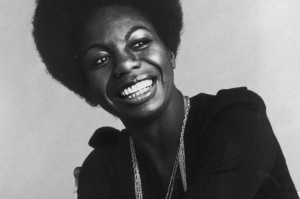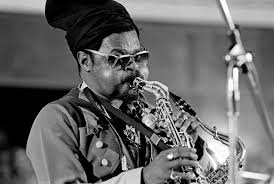Two Gone, But Not Forgotten Musical Geniuses
 Nina Simone and Rahsaan Roland Kirk were two larger-than-life, musical geniuses who never received the commercial recognition they should have received during their respective lifetimes. Recently, two documentaries about Simone and Kirk came out that give a new perspective on their lives and give them the highest praise due to them. I loved both films and I hope you will see them too!
Nina Simone and Rahsaan Roland Kirk were two larger-than-life, musical geniuses who never received the commercial recognition they should have received during their respective lifetimes. Recently, two documentaries about Simone and Kirk came out that give a new perspective on their lives and give them the highest praise due to them. I loved both films and I hope you will see them too!
What Happened, Miss Simone
I didn’t know much about Nina Simone’s life before the documentary beyond listening to her records. But after watching it, I had a greater understanding of where she was coming from both musically and politically. Raised in the segregated South, Simone had to overcome many racial barriers in the music world. She was denied a scholarship to Curtis Institute of Music because she was black, but ended up at Juilliard. To pay for school, she played piano in Atlantic City, where she perfected her mix of jazz, gospel, blues and classical music.
She had a very messy private life. I knew that she had bipolar disorder, but didn’t know about the domestic abuse she suffered under her husband, as well as being emotionally abusive to her daughter. And, apparently, she fired a gun at a record company executive she thought was stealing royalty money from her. Her volatile behavior was only known to a few people until after her death.
But she is best known for her powerful songs, which became some of the most important music of the civil rights movement. “How can you be an artist and not reflect the times?” she once said. Hit songs like Mississippi Goddam and Young, Gifted and Black became anthems for the era. However, her career suffered commercially because of her radical politics. She was denied appearances on the Ed Sullivan Show because she embraced black power.
Simone would be reduced to singing in small nightclubs in Paris for a few hundred dollars a performance. Her mental illness also became more pronounced as the years progressed, and she eventually died from breast cancer. But her musical legacy lives on.
One of her best performances, including Mississippi Goddam:
 The Case of the Three Sided Dream
The Case of the Three Sided Dream
Rahsaan Roland Kirk was an interesting character. He was a jazz multi-instrumentalist who considered himself a “journey agent” and his band members “poets.” He was blind, but he had vivid dreams that helped him see his music. The movie title is named after his most famous album, which was also political in nature, with rants about the Watergate scandal and racism.
Kirk once proclaimed that jazz was black classical music. In the early 1970s TV shows like the Ed Sullivan Show preferred to have pop stars come on to perform instead of jazz musicians because they were more commercially acceptable. Kirk mounted a campaign to get “black classical music” on mainstream television by having fellow “jazz militants” disrupt live television programs like the Dick Cavett Show with whistles. Kirk finally got Ed Sullivan’s attention and was invited to perform, but only under the condition that he performed a nice, non-threathening Stevie Wonder song.
Being a man that literally toots his own horn, he went against the establishment and played the powerful “Haitian Fight Song” with Charlie Mingus and other poets.
One of his most memorable performances: